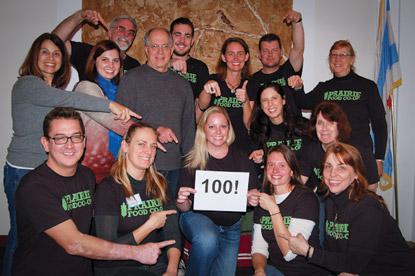A Fresh Look at Membership Recruitment

Community organizing evokes a -variety of images and reactions. Some associate it with the movements of the 1960s and ’70s, others with Barack Obama’s political campaigns, and many are not quite sure what it is.
Like its reputation, community organizing practices have evolved. National resource centers like the New Organizing Institute and Training for Change are now teaching people—both in person and online—to use proven techniques to successfully effect change in their communities.
Consumer engagement for startups
As Food Co-op Initiative (FCI) has worked with increasing numbers of startup food co-ops, we have noticed a consistent pattern in membership growth. After an initial surge of interest, growth tends to plateau dramatically or stall out altogether. The strength of an organizing team and its community’s demographics tend not to determine this stage. However, the explanation for this pattern falls along familiar lines, patterns that those of us in the established co-op community understand well: consumer engagement circles.
Core supporters are ready to join as soon as they are asked—the initial surge. Recruitment is easy, and more sophisticated approaches are not necessary and therefore are not developed.
Mid-level supporters do not respond to the open invitation to join—they push back. This particular segment requires a new campaign.
Periphery supporters also exist; however, they tend to wait until the co-op opens before considering member-ownership.
Organizing for membership growth
Using the successful organizing efforts of the 2008 presidential campaign as a model, FCI staff developed an approach to overcome the typical membership plateau that startups encounter. But this is business, not a social movement, right? Well, yes and no. Just like starting a business, organizing a community requires learning new skills and maintaining serious commitment. Fortunately, new food co-op founders are ideal students and have responded strongly to this new approach.
Over the past year FCI has sponsored both introductory workshops and full-day training sessions. Reviews have been glowing, but, more importantly, recent growth trends are suggesting positive results.
Effective community organizing relies on building an understanding of shared purpose and message, establishing relationships of trust, creating a sense of urgency, and offering a viable opportunity to make a real difference. These are all familiar building blocks for food co-ops. When organizers learn how to put them together and use them effectively from the start, it can bring powerful, lasting results.
Member recruitment and community engagement are not limited to startups. Good organizing skills can benefit any co-op that wants to strengthen member engagement and expand its impact in the community. FCI will continue to offer this training, and we encourage any interested co-ops to join us.
Recommended resources
Building Powerful Community Organizations
by Michael Jacoby Brown
New Organizing Institute
www.neworganizing.com/toolbox
NOI videos
www.youtube.com/user/neworganizinginst/videos
Training for Change
www.trainingforchange.org







